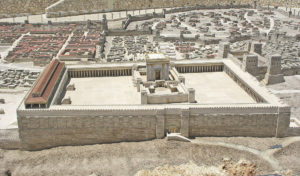When Vincent Donovan was sent in the 1960s as a Roman Catholic priest to evangelize the Masia people of Tanzania, he made a shocking discovery. The men never ate in the presence of women. What accounted for this unusual behavior? In that culture, where women were extremely devalued and degraded, the men were convinced that the very presence of a woman at a meal could pollute their food.
When the Masia people came to faith, however, and began to celebrate the Mass, Donovan writes, “they were accepting the truth that in the Eucharist . . . there is neither slave nor free, neither Jew nor Greek, neither male nor female.” For many Masian men and women, it was in church where they first ate and drank in each other’s presence.
To me this illustrates a significant dimension to the Lord’s Supper which often ignored. The Lord’s Supper is not only a taste of God’s love to nourish us; it’s also a banquet of God’s love to unite us.
There ought to be no rank at the Lord’s Supper, no hierarchy, no divisions. At the Lord’s Supper there aren’t employers and employees or teachers and students. There aren’t even husbands and wives, or parents and children. There’s only one category—believers, brothers and sisters.
At one point in his ministry, the apostle Peter denied this reality. Fearful of the circumcision group, he refused to eat with Gentiles who did not conform to Jewish customs. When Peter came to Antioch, Paul confronted him to his face (Gal.2:13-14). What a showdown to witness!! The two greatest apostles, Paul confronting Peter!
What had agitated Paul? Peter had apparently raised the bar for admission to the Lord’s Supper. Being a believer wasn’t good enough; you had to follow Jewish customs. So Paul upbraids him: “Do you know what you’ve done by raising the bar? You’ve denied justification by faith alone” (see Gal.2:16)!
The Lord’s Supper is the great unifier and the great equalizer. At the Lord’s Supper there are only believers, only brothers and sisters. The Lord’s Supper is a meal to bring us together, not drive us apart.
This is why the apostle Paul summons us to examine ourselves (v.28). Self-examination is not primarily: am I really a child of God or am I living as a child of God or are my spiritual ducks in a row? Self-examination is: Am I causing or perpetuating division in the congregation? Am I reconfiguring the congregation into ranks and tiers? Am I creating a hierarchy of spiritual haves and have-nots?
Note what Paul says in 1 Corinthians 11. Though the church in Corinth assembled each week and each time celebrated the Lord’s Supper, Paul observes: “So then, when you come together, it is not the Lord’s Supper you eat” (v.20). How could he say that? They were eating bread and wine just as Jesus commanded, and yet Paul knew they weren’t united. In fact, the Corinthian church had multiple fault lines: some were followers of Paul and others of Peter. In chapter 11 we discover other divisions between rich and poor. Those factions revealed themselves every time they celebrated the Lord’s Supper.
Though it was custom then to have a full meal with the Lord’s Supper, the Corinthians weren’t eating together. “For when you are eating,” Paul says, “some of you go ahead with your own private suppers. As a result, one person remains hungry and another gets drunk” (v.21). The rich are in one corner enjoying ambrosia and abundant wine and the poor are in another ingesting whatever staples they could afford. You’re treating the Lord’s Supper, Paul says, as if it were your own private feast. “Don’t you have homes to eat and drink in? Or do you despise the church of God by humiliating those who have nothing?” (v.22).
When we celebrate the Lord’s Supper, Paul says, we “proclaim the Lord’s death.” Jesus died to unite us, to give whosoever believes access to the Father, to break down the barrier between Jew and Gentile, male and female, slave and free. But if we come to the table as a divided church, we don’t proclaim X’s death! We mock His death.
When we celebrate the Lord’s Supper, therefore, we must discern the body of Christ. What’s the body of Christ? The church (see 1 Cor.12)! Be mindful of the congregation! “For those who eat and drink without discerning the body of Christ eat and drink judgment on themselves (v.29)” God’s judgment falls on people who despise the death of Christ by dividing the body of Christ. That’s why Paul summons self-examination: “Everyone ought to examine themselves before they eat of the bread and drink from the cup” (v.28).
This banquet proclaims Christ’s death. He died for his people. We are to regard as brothers and sisters those whom God regards as his children. By grace through faith in Christ, you’re a child of God. But so is your brother in the next pew, the guy who rubs you the wrong way. So is your sister, with whom you serve, who irritates you. At the Lord’s Supper, Jamie Smith says, we “learn to love people we really don’t like.”
The Lord’s Supper certainly forges vertical fellowship, fellowship with Christ. But it also deepens horizontal fellowship, fellowship with one another. As Paul said in the previous chapter, “Because there is one loaf, we, who are many, are one body, for we all share of the one loaf” (1 Cor.10:17).
This is why we don’t celebrate the Lord’s Supper privately. We celebrate it here in church and we celebrate it as a church. The Lord’s Supper isn’t an individual experience you have here in church. It certainly isn’t a feature of your own private devotional life.
Sometimes people shut their eyes as they celebrate the Lord’s Supper because they’re trying to concentrate on Jesus’ death and what it means for them. But really, we should have our eyes open. We should be looking around at each other.
We should be saying: God has invited me to this banquet. But God has invited him and he’s invited her. How dare I disparage those whom God has invited to his banquet? How can I ignore her whom God has befriended. The Lord’s Supper is not only a taste of love to nourish us; it’s a banquet of love to unite us.




